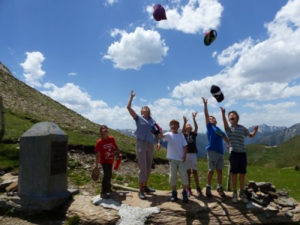Ten things to know about school in France By nadia, on 26th October 2016 
- There are four tiers of school in France, Maternelle (nursery 4-6 years), Primaire (primary 6-11 years), College (secondary 11-15 years), Lycée (sixth form 15-18 years)
- The majority of children in France go to their local and usually closest primary and secondary school which are state funded and controlled
- Private education only really exists in terms of Catholic schools which are deemed ‘private’ but teachers are employed and paid by the state and fees are around €100 per term. There is also a very small network of high fee-paying private schools and international schools
- Formal schooling doesn’t start until six years of age in France but then the school day is long; 8am – 5pm although there is only morning school on Wednesdays
- There is no headmaster or headmistress as such in French schools; teachers are answerable directly to the regional education authority and a teacher is designated ‘director’ for administrative tasks each year. Secondary schools have a non-teaching, full-time director in charge
- Children do not wear school uniform in French schools
- French schools are strictly secular (unless designated Catholic and hence private) and no celebration of religious festivals is permitted
- French schools tend to put a great deal of emphasis on the core subjects of French and Maths with less time given to imaginative/creative subjects. There also tends to be a fair amount of learning by heart, especially in the case of poems and dictation
- Children often have to repeat a year during their school lives to ensure they have reach expected levels but there is no shame attached to this.
- Many children (often more than 50%) go home for lunch with their parents. Others eat in the school restaurant which is paid for by the family and is made up of a three course, balanced meal. Packed lunches do not really exist unless taken for a school outing
Like this:Like Loading...
Related
Comments are closed.
|
For further information please contact us:
|






You must be logged in to post a comment.